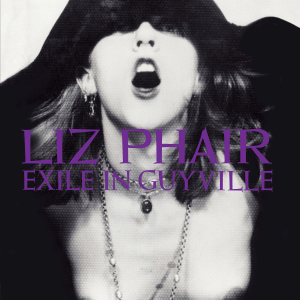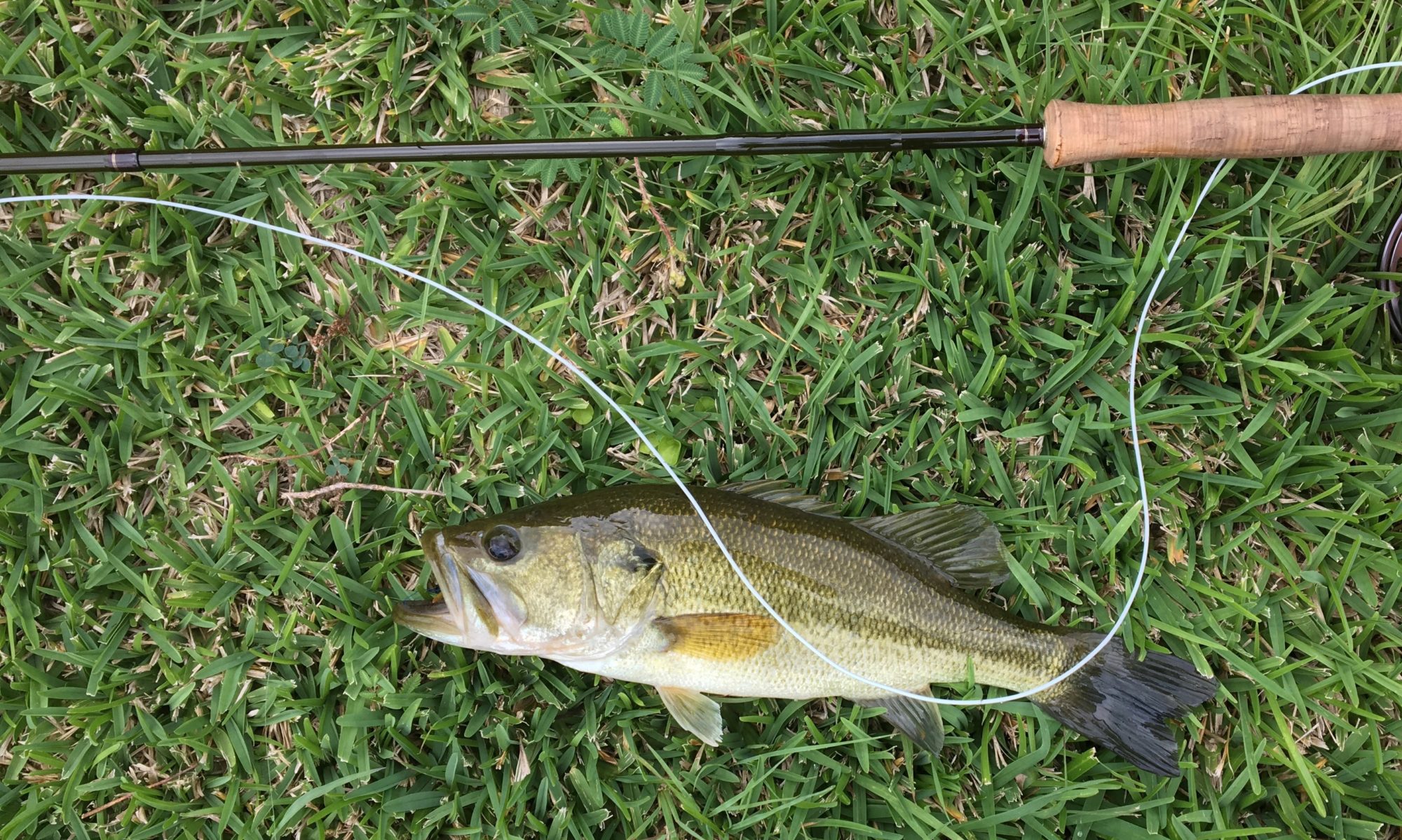What we took.
We packed to skip the baggage claim in Chicago. We flew in early on Saturday, and spent the rest of the day looking for things we’d never seen.
The only specialized fishing gear we took were polarized lenses. Our guides, Midwest Waters Anglers, provided all the gear, and it was great gear.
What I lost, Where we didn’t go.
I lost my beloved Bonefish & Tarpon Trust Yeti thermos. I really liked that Thermos.
I wish we’d had time to go to Springfield for the Abraham Lincoln Museum. We could have easily spent more time in Chicago.

What we ate.
By some measures Houston is now the most ethnically diverse city in the US, but that’s somewhat disingenuous. It treats all white people as a lump, which is like treating all Asians and Asian Americans as a lump, or treating all Africans and African Americans as a lump. Chicago’s story is in part a story of 19th and 20th century first-generation Irish, Polish, German, Italian, Welsh, and Jewish immigrants, white immigration that wasn’t from England via New England–the immigrants in The Jungle are Lithuanian. In 2019 the nativist impulse is aimed at immigrants from Mexico and Central America. In 1850 it was the anti-Catholic No-Nothings opposed to Irish and German Catholic immigration. Things never change.

As of 2010, Chicago is 31.7% non-Hispanic whites, 32.9% black or African American, 5.5% Asian, and 13.3% Hispanic, and 16.1% mixed or other, but there are lots of ethnic traditions not covered in those numbers. We wanted Chicago ethnic food, and got a list of restaurants from our friend Tom, who knows these things. He said that there were three great ethnic food cities in the US, New York, Chicago, and Houston, and that the hard part of the list for Chicago was coming up with stuff we didn’t have in Houston. It’s a great list, even if we only made it to three of the places. Some of Tom’s notes are included in quotes:
- Min Hing Cuisine – “great dim sum for breakfast (6 kinds of shrimp dumplings is good enough for me).” We went there straight from the airport. Chinese are about 1.6% of Chicago’s population, and first got there before 1860 with the railroads. The population boomed in the 1950s and 60s.
- Parachute – “fusion Korean American, in the best way.” This place has a Michelin star, and seems to be everyone’s favorite restaurant, Alinea be damned. Make reservations in advance. We didn’t make reservations, and getting in on a Saturday night without a reservation might be harder than catching steelhead. We didn’t catch any Illinois steelhead either.
- Shokran – “Moroccan kebabs and salads, also tangines and couscous. Cash only. BYOB.”
- Staropolska or Lutnia Polish – About 6.7% of Chicago is Polish, with Polish the third language, after English and Spanish. We ate at Staropolska, just around the corner from St. Hyacinth Basilica. The young blonde waitress with the Polish accent was proud that it was the oldest Polish restaurant in Chicago. It could use some freshening, but that might ruin the vibe, and the food was great and the service was great.

- Jibek Jolu – “dumplings and noodles . . . Uighur.”
- Sayat-Nova – “Armenian. Typical middle eastern fare . . . ” It was also in the middle of the Miracle Mile, and we went on the Sunday night of a long weekend when there was still plenty of shopping to be done. After some terrified driving we found a parking garage ($26 for a bit more than an hour, and well worth it). Kris loved Sayat-Nova, and said I have to ask Tom for recommendations wherever we go. I wish Tom could have helped out in Pittsburg, New Hampshire.

- Little Bucharest Bistro – “quality Central European food, excellent service.” Romanian. We didn’t go, but the descriptions on the internet were great. It wasn’t far from Staropolska.
- Birrieria Zaragoza – “fast casual Mexican all about goat.” The Mexican population is the fastest growing population in Chicago, so it made sense to include something, but it broke Tom’s rule, sort of. I don’t know of anyplace in Houston that specializes in goat.

The best thing about ethnic Chicago restaurants? Other than the food of course. I could wear my stylish fishing clothes, the ones designed by the fashion-forward stylists at Patagonia, to any of them, which I did.
If that wasn’t enough of a list, Tom provided a supplement: “Ghareeb Nawaz Indo-Pakistani. San Soo Gob San-Korean. Galit-Israeli-Middle Eastern. Kaboobi Persian Grill (North side – our favorite). Cabra Peruvian (Rooftop restaurant). If you have time for breakfast before you leave, make it to Dove’s Luncheonette….”.

Books, Movies, TV.
There are tons of movies from Chicago, and we watched The Blues Brothers, The Fugitive, and The Untouchables. Pretty good Chicago movies. We never watched Ferris Bueller’s Day Off. I may be too old for it now.
Mostly I read about Lincoln. I wonder how he managed to govern so well without Tweets. This is a good time to ponder Lincoln, and there’s a ton of stuff out there. Sometimes we get better leaders than we deserve. Sometimes apparently we don’t.
I read Saul Bellow’s The Adventures of Auggie March. I had tried to read Bellow before, but didn’t quite get it. This time was better. I tried to read The Jungle, but found it too painful. I listened to a lot of Sara Paretsky’s V. I. Warshawski novels, but never did figure out how to pronounce Warshawski’s name, which is a weak and obscure joke about the inevitable unlikable character trope in every novel. If they can’t pronounce her name, they’re almost certainly the villain. I listened to some Dresden File novels by Jim Butcher, but didn’t think they were nearly as amusing as when I’d listened to them years ago. Michael Harvey wrote some good Chicago mysteries, and I listened to those when I got tired of the others.

Donuts.
We picked up Polish pastries at Kurowski Sausage Shop, pretzel-like crescents lightly filled with an unidentifiable jam, but I was too intimidated to brave the meat case. On Sunday morning we made a quick drive to Oak Park for Donuts at Firecakes Donuts and a quick visit to the Frank Lloyd Wright studio. The donuts were just fine, and I wish we’d had time to look at the scattered Wright houses. Next time.
There are Dunkin’ Donuts everywhere in Chicago. Chicago should do better.


Playlist.
This was a long list, so it’ll be pretty general.
Chicago’s population is 32.9% non-Hispanic African or African American. The percentage of African American population in Houston, a Southern city with significant historic black communities, is only 22.9%. For the Houston metropolitan area, Houston plus the suburbs, the number drops slightly, to 21%, but for Chicago 32.9% plunges to 17% when you add in the suburbs.
The two cities are of roughly the same size, but their largest growth occurs about a century apart. The historic African American population in Houston has its origin in slavery, but much of the dispersion from the city into the suburbs occurred after the Civil Rights Movement, and Blacks apparently moved out to the suburbs in about the same numbers as they stayed in Houston. In Chicago, the boom in African American population occurred in the great migration, from 1910 to 1960, and plenty of movement to the suburbs occurred largely before the Civil Rights Movement. Blacks apparently stuck to (or were confined to) the City.
Why this is kicking off the music playlist may not be obvious, but there is a lot of great music out of Chicago’s African American community. There are three cities most responsible for the origination of jazz: New Orleans, Kansas City, and Chicago. The earliest migration of the Blues was from the Mississippi Delta to Chicago. This is Great Migration stuff, and stuff that shaped us profoundly.

There’s another odd thing about Illinois music, there’s a surprising number of good folk/country/Americana musicians out of Illinois. Illinois is our second flattest state after Florida, tucked in as a drainage between Lake Michigan and the Mississippi. It hides all that flatness with a combination of skyscrapers and trees. Anyway, all that flatness makes for great farmland, and except for Chicago, this is Midwest farm country. It’s no surprise that farm country makes for country music and Republican voters.
Jazz
I probably should have done better, but Miles Davis and Louis Armstrong. Armstrong’s first recordings are from Chicago. The singers Dee Alexander and Johnny Hartman, and Herbie Hancock.
Blues
Of course the Blues Brothers was set in Chicago. Where else would it be? All of these musicians were from, cycled through, wrote about, or sang about Chicago: Robert Johnson, The Paul Butterfield Blues Band, Jimmy Rogers (no, not that Jimmie Rodgers), Muddy Waters, Howlin’ Wolf, Elmore James, Little Walter, Luther Allison, Hound Dog Taylor, Jimmy Reed, Slim Harpo, Junior Wells, Buddy Guy, Son Seales, Otis Rush, Sonny Boy Williamson, James Cotton, Magic Sam, Lonnie Brooks, Earl Hooker, Freddie King . . . Is Bo Diddley the Blues? We talked about going to a blues bar on Saturday, but we’re old, things start late, and fishing starts early. Next time.

Folk/Country/Americana
John Prine, Allison Krauss, Shawn Colvin, Son Volt, Wilco, Steve Goodman.
Has there ever been a sadder song than Steve Goodman’s A Dying Fan’s Last Request? Not only was Goodman in fact dying, he was a Cub’s fan. There is nothing more pathetic than the Chicago Cubs, but it’s still one of the best baseball songs ever.
Scattered and Inconsisten Rock
In early adolescence, I thought Chicago was the greatest band ever. I liked the brass, I liked the politics, I liked the guitar. I hadn’t listened to them since. Color My World was probably the first song I learned to play on the guitar, though in my defense it was probably before it became the most important high school prom song ever written. I still think 25 or 6 to 4 was a pretty great song. Pretty good song. Ok, I still like it.
Reo Speedwagon, Cheap Trick, Smashing Pumpkins.
When Liz Phair’s Exile in Guyville came out in the 90s it got great reviews and I bought a copy, probably without actually reading the reviews. We were on a family car trip and I started the CD in the car. Some song came on, Flower? Fuck and Run? Anyway, it was really not age appropriate, either for me or my children. This trip was probably the second time I’d listened to it. It’s pretty raw in a “I grew up in Chicago suburbs and graduated from Oberlin” sort of way. It may be age appropriate for my children now, but it’s still not age appropriate for me.

Random Stuff
- Allister, Somewhere Down on Fullerton.
- Mobstability, Crook County (Bond Crusher Mix).
- Rhett Miller, The El.
- The Lawrence Arms, A Guided Tour of Chicago.
- Andrew Bird, Pulaski at Night. Good song.
- Common, Chi-City.
- Frank Sinatra, My Kind of Town.
- Graham Nash, Chicago/We Can Change the World.
- Sufjan Stevens, Illinois.
- Dan Fogalberg, Illinois.
- Ben Folds, Effington.
- Twista, Crook County.
- Kanye West, Homecoming
- Aliotta Haynes Jeremiah, Lake Shore Drive
- Jim Croce, Bad Bad Leroy Brown.
- Chicago Symphony Orchestra, Mahler, Symphony #9 in D. The Chicago Symphony Center Orchestra Hall is magnificent.
Guitar.
Didn’t take one. A guy in the airport told me that he always checked his guitar, and convinced me that I could do the same with a good enough case. Kris thought that was a great idea. Stuffing a guitar in the overhead is a pain. I got back to Houston and ordered a new case.
































